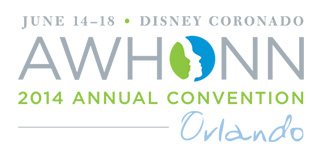Neonatal Abstinence Syndrome: Non-Discriminatory, Multidisciplinary Care
Title: Neonatal Abstinence Syndrome: Non-Discriminatory, Multidisciplinary Care
- Describe the impact of Ohio’s pursuance for 100% of labor and delivery hospitals to preform universal maternal drug screens in relation to the increase of neonatal abstinence syndrome.
- Describe the innovative education program for all disciplines, nursing, pharmacy, social work, spiritual care, and physicians, to provide non-discriminatory care.
- Describe methods to provide non-discriminatory care for families with a newborn experiencing withdraw.
The State of Ohio has recommended that all labor and delivery hospitals drug test laboring women in order to better detect infants with Neonatal Abstinence Syndrome (NAS). A multidisciplinary approach to caring for infants diagnosed with NAS is essential to optimizing outcomes. An innovative education session was developed for all disciplines to promote non-discriminatory evidenced-based care.
Proposed change:
Based upon the recommendations from the State of Ohio, needs assessment of the perinatal staff, and an increase in maternal drug and substance abuse in the Greater Cincinnati Area, a community based Level 2 Family Birth Center examined and developed and innovative multidisciplinary education program about the plan of care for infants diagnosed with NAS, providing non-discriminatory family centered care, and improving inter-rater reliability with the Finnegan Scoring Tool.
Implementation, outcomes and evaluation:
In reponse to the increase in maternal drug abuse, the NAS education program was implemented in collaboration with nursing, physicians, social work, pharmacy, and spiritual care. Together the team created a multi-disciplinary education program covering incidence and general discussion of NAS, identification of fetal, maternal, and neonatal effects of commonly abused perinatal drug exposure, the role of diversity and compassionate care in relation to perinatal drug exposure, social service involvement in relation to perinatal maternal drug abuse and NAS, types of drug testing techniques, pharmacological protocol and treatment for NAS, non-pharmacological treatment for newborns with NAS, and scoring the signs and symptoms of NAS using the Finnegan Scoring Tool. As a result, the NAS education program fostered interdisciplinary communication, identified standards of care, and promoted non-discriminatory care. Implications for nursing practice:
With the application of the content covered in the NAS education program nursing is able to facilitate non-discriminatory family centered care of a family with an infant diagnosed with NAS. With the rise of NAS at the Level II facility, the education program improved delivery of care, enhanced multi-disciplinary communication, and improved inter-rater reliability for the Finnegan Scoring Tool.
Keywords:
Non-Discriminatory Care, Multi-disciplinary Collaboration, Neonatal Abstinence Syndrome, Maternal Drug Use, Finnegan Scoring Tool
